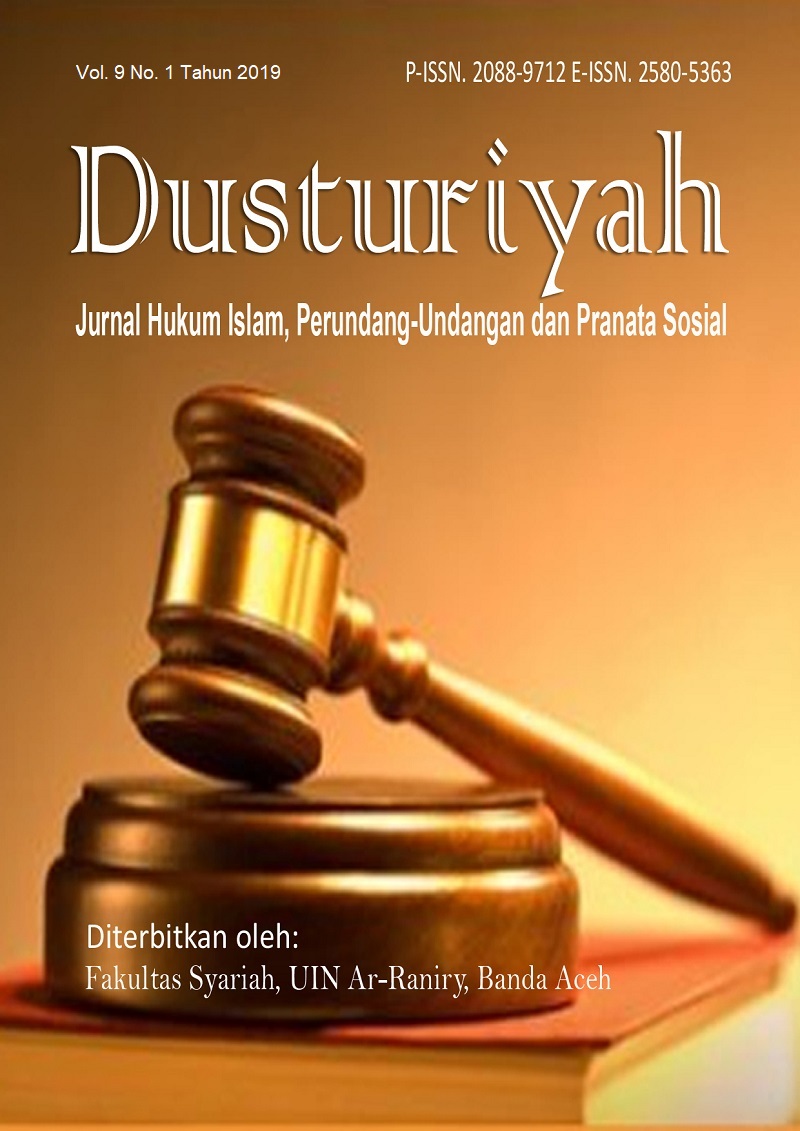KONSEP BID’AH MENURUT IMAM NAWAWI DAN SYEKH ABDUL AZIZ BIN BAZ
DOI:
https://doi.org/10.22373/dusturiyah.v9i1.4757Keywords:
Bid'ah, Imam Nawawi, Syekh Abdul Aziz Bin BazAbstract
The definition of bid'ah varies, causing conflict. The research question in this article is what is the meaning of sunnah and bid'ah according to Imam Nawawi and Syekh Abdul Aziz Bin Baz and what are the arguments used and the method of understanding them and the examples of bid'ah according to both. By using the library research method (library research) examines the data and written materials related to the theme of the problem being studied, using primary and secondary materials. The research found that, Imam Nawawi interpreted bid'ah as creating a practice that did not exist at the time of the Prophet, and he distributed bid'ah to two kinds, namely bid'ah ḥasanaḥ such as reading the talqin after burying a corpse and qabihaḥ such as raghaib prayer. Imam Nawawi concluded the hadith with hadith, which is a general hadith that is endorsed with a specific hadith, while Bin Baz defines bid'ah as any act of worship that is not practiced by the Prophet and there is no origin from the Qur'an, sunnah. and from the deeds of khulafa ar-Rashiddin, and he does not share bid'ah, all bid'ah is ḍhalalah, he also uses the term "mungkar" for bid'ah dhalalah. Bin Baz argued the verses of the Qur'an and corroborated them with hadith. From the above explanation it can be concluded that, Bin Baz only specifies bid'ah in matters of worship, but he does not explain the limitations of worship and non-worship, such as punishing the Prophet's speech as bid'ah, so the definition is difficult to apply.
References
Abi Daud Sulaiman Ibn al-Asy’at al-Sijistani, Sunan Abu Dawud, Juz III, Beirut: Dar al-Fikr, t.t.
Abu Syekh al-Magety, Kaidah Dan UsulBid’ah, (E-Book), Diakses Melaluihttp://www.scribd.com/mobile/document/354860782/Kaidah-dan-Usul-Bid-ah-Abu-Syeikha-Al-Magety-pdf, tanggal 8 Oct 2017.
Abdul Aziz Bin Abdullah Bin Bazz, Berpengang teguh dengan sunnah, (Terj. Rahmat Ali al-Arifin Muhammad Bin Ma’ruf), Riyadh: Islamic Propagation Office InRabwah, 1426H.
Abdul Salam Bin Salim, Kun Salafiyyan al-jaddati, Al-Kaherah: Dar al-Minhaj, 1426 H
Ahmad Bin Taimiyah, Majmu’ Fatawa, Juz XX, Saudi: Dakwah Iesyadiyah, 1425.
Ishak Ibrahim Bin Musa Bin Muhammad al-Lakhmiasy-Syatibi, I’tisham, Jilid I, (Terj.ShalahuddinSabki, Bangun Sarwo Aji Wibowo), Jakarta: Buku Islam Rahmatan, 2006.
Ibnu Abdill Barr, al-Istidzkar, Juz IV, Kaherah: Darulwa’i, 1993 M.
I’izuddin Abdul Aziz Bin Abdul Salam, Qawa’id al-Kubra, Juz II, Damsyik: DarulQalam, t,t
Jamaluddin Muhammad Bin Mukram Bin Ibnu Manzur, Lisan al-‘Arabi, Juz VI, Beirut: Dar al-ṣadir, t.t.
M, Syarifudin, Bid’ah Menurut Pandangan Muhammaiyah Dan Nahdhlatul Ulama, Yohyakarta: Uin Sunan Kalijaga 2009
Mohammad Subki Abdul Rahman Al-Hafiz Mohd Rifzi Myiddin, Ensiklopedia Bidaah, Selangor: PSN Publication Snd, Bhd 2012.
Muhammad Ridha Abdul Alim Al-kafrawi, laythakulul jadid bid’ah, Al-kaherah: MajlisA’laIslamiyah, 1410 H.
Muhammad Ali Bin Ahmad Bin Sa’id Bin Hazm, Al-Ihkam Fi usul al-Ahkam, Juz I, Mesir: Badar al-Kutub, t,t.
Zakaria Mahyudin Bin Syaraf, Tahzib Al-asma wal lughat, juz III, Bairut: Darul Kutub al-Alamiyah, t,t.











